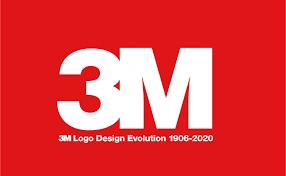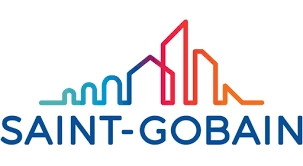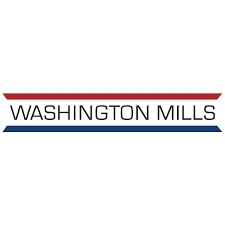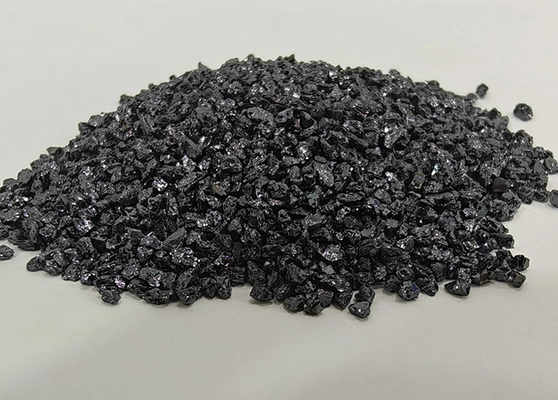Introduction to Abrasive Grains and Their Importance in Foreign Trade
Abrasive grains are essential materials used in manufacturing for grinding, polishing, and cutting applications across industries like automotive, aerospace, and metalworking. As a B2B buyer, selecting the right abrasive grains supplier can impact product quality, cost efficiency, and supply chain reliability. This article compares leading manufacturers to help you make informed decisions in the global market for abrasive grains.
With the rise of international trade, suppliers must offer consistent quality, competitive pricing, and innovative solutions. We'll evaluate top brands based on factors such as product variety, manufacturing standards, environmental practices, and customer support, ensuring you find the best fit for your business needs.
Overview of Top Abrasive Grains Manufacturers
In the competitive landscape of abrasive grains suppliers, several brands stand out for their expertise and global reach. We'll focus on four key players: 3M, Saint-Gobain Abrasives, Washington Mills, and Fujimi Corporation. Each brings unique strengths to the table, catering to diverse B2B requirements in foreign trade.
3M: A Leader in Innovative Abrasive Solutions

3M is a multinational conglomerate known for its advanced abrasive grains, including ceramic and aluminum oxide varieties. Founded in 1902, the company emphasizes research and development, making it a go-to supplier for high-performance applications.
Pros of 3M include its wide product range, which supports precision manufacturing, and strong global distribution networks that ensure timely deliveries. Their grains often feature enhanced durability, reducing waste in production lines.
Cons might involve higher pricing compared to basic suppliers, which could be a concern for budget-sensitive buyers. Additionally, 3M's focus on premium products may overwhelm smaller businesses needing simpler options.
A unique selling point is 3M's commitment to sustainability, with eco-friendly grains that meet international standards, appealing to environmentally conscious B2B clients in foreign trade.
Saint-Gobain Abrasives: Excellence in Quality and Versatility

Saint-Gobain, established in 1665, is a French-based giant offering a broad spectrum of abrasive grains like silicon carbide and fused alumina. They serve industries requiring high versatility, from construction to electronics.
One of the pros is their exceptional quality control, ensuring consistent grain sizes that minimize defects in end products. Their global presence also facilitates seamless international shipping and customs handling for B2B exporters.
On the downside, Saint-Gobain's products can have longer lead times due to high demand, potentially disrupting supply chains. Pricing is competitive but may vary by region, affecting cost predictability.
A standout USP is their customization options, allowing buyers to tailor abrasive grains to specific applications, which gives an edge in specialized foreign trade markets.
Washington Mills: Specialized Expertise in Electrofused Grains

Washington Mills, an American company with over 150 years of experience, specializes in electrofused abrasive grains such as brown fused alumina and white fused alumina. They focus on durability for heavy-duty industrial uses.
Advantages include cost-effective pricing, making them ideal for bulk purchases in B2B scenarios, and reliable performance in demanding environments like mining and metal fabrication.
Potential cons are limited product innovation compared to larger conglomerates, which might not satisfy clients seeking cutting-edge materials. Their U.S.-centric operations could also lead to higher shipping costs for international buyers.
A key unique selling point is their emphasis on raw material sourcing from sustainable mines, providing traceable supply chains that align with global trade regulations and ethical standards.
Fujimi Corporation: Precision and Technological Innovation from Japan

Fujimi Corporation, a Japanese leader since 1956, excels in high-purity abrasive grains like colloidal silica and diamond powders, primarily for electronics and semiconductor industries.
Pros feature superior precision and purity levels, crucial for advanced manufacturing, along with excellent technical support that aids in product integration for B2B clients.
Drawbacks may include premium pricing and potential language barriers in international dealings, which could complicate negotiations for non-Japanese buyers.
Fujimi's USP lies in their cutting-edge nanotechnology, offering grains that enhance micro-precision tasks, making them a top choice for high-tech foreign trade sectors.
In addition to global giants like 3M, Saint-Gobain, Washington Mills, and Fujimi, niche suppliers such as CanAbrasive offer practical solutions for B2B buyers who seek cost-effective and reliable sourcing from China. Exploring both international and specialized suppliers helps buyers balance quality, cost, and supply flexibility in abrasive grains procurement.
CanAbrasive: Specialized B2B Supplier from China
CanAbrasive is a professional Chinese supplier focusing on silicon carbide (black & green) and fused alumina (brown & white) powders and grits. With FEPA-standard quality control and competitive FOB/CIF pricing, CanAbrasive supports global buyers in abrasives, refractories, and ceramics.
Pros include flexible MOQ options, fast sample support, and direct factory pricing suitable for international B2B buyers. A potential challenge is smaller brand awareness compared with giants like 3M or Saint-Gobain, but this is offset by high responsiveness and niche product focus.
The unique selling point is CanAbrasive’s dedicated platform that provides detailed grit-size data, FEPA comparison tables, and direct inquiry forms, making it highly convenient for foreign trade procurement.
Key Feature Comparison of Top Abrasive Grains Suppliers
To simplify the comparison, we've outlined key features in the table below. This includes aspects like product range, pricing, quality ratings, and global reach, based on industry data and user feedback.
| Supplier | Product Range | Pricing (Relative) | Quality Rating (Out of 10) | Global Reach | Unique Focus |
|---|---|---|---|---|---|
| 3M | Wide: Ceramic, Aluminum Oxide | High | 9.5 | Extensive worldwide | Innovation and sustainability |
| Saint-Gobain Abrasives | Broad: Silicon Carbide, Fused Alumina | Medium | 9.0 | Strong in Europe and Americas | Customization and versatility |
| Washington Mills | Specialized: Fused Alumina variants | Low | 8.5 | Focused on North America, expanding | Sustainable sourcing |
| Fujimi Corporation | Advanced: Diamond, Colloidal Silica | High | 9.8 | Strong in Asia, growing globally | Precision technology |
| CanAbrasive | Focused: Silicon Carbide, Brown/White Fused Alumina | Low-Medium | 8.8 | Strong in Asia, expanding to EU & Middle East | Direct factory supply, flexible MOQ |
This table highlights how each supplier aligns with different B2B needs, such as budget constraints or specialized requirements in foreign trade.
Pros, Cons, and Unique Selling Points in Depth
When evaluating abrasive grains suppliers, it's vital to weigh pros and cons against your business goals. For instance, 3M's pros include superior durability and eco-friendly options, but cons like higher costs might deter price-sensitive buyers.
Saint-Gobain offers pros in versatility and global logistics, yet cons in lead times could affect urgent orders. Washington Mills shines with affordable pros and ethical sourcing, though their cons in innovation might limit future-proofing.
Fujimi's pros in precision make it ideal for tech-driven industries, but cons in accessibility for non-Asian markets could pose challenges. Overall, USPs like 3M's sustainability or Fujimi's nanotechnology can differentiate suppliers in competitive B2B environments.
Frequently Asked Questions
Common Inquiries About Abrasive Grains Suppliers
What factors should I consider when choosing an abrasive grains supplier? Key factors include product quality, pricing, delivery reliability, and compliance with international standards like ISO certifications.
How do prices vary among top suppliers? Prices range from low for Washington Mills to high for 3M and Fujimi, depending on the grain type and added features like customization.
Are these suppliers suitable for international trade? Yes, all featured suppliers have global networks, but check for region-specific regulations to ensure smooth exports and imports.
What makes abrasive grains from 3M unique? 3M's grains often incorporate advanced bonding technologies for longer-lasting performance, ideal for high-volume B2B applications.
How can I evaluate the quality of abrasive grains? Look for supplier certifications, customer reviews, and conduct sample testing to assess grain consistency and performance.
Conclusion: Making the Right Choice for Your B2B Needs
In summary, selecting the best abrasive grains supplier involves balancing quality, cost, and innovation based on your specific foreign trade requirements. Whether you choose 3M for cutting-edge solutions, Saint-Gobain for versatility, Washington Mills for value, or Fujimi for precision, each offers distinct advantages. By considering the comparisons and FAQs provided, B2B buyers can optimize their supply chains for long-term success in the global market. Always prioritize suppliers that align with your business ethics and operational goals for the best results.
Request a Quote or Sample
Popular Products
Grünes Siliziumkarbid
View DetailsSchwarzes Siliziumkarbid
View Details